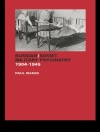Known as the science of strategy, game theory is a branch of mathematics that has gained broad acceptance as a legitimate methodological tool, and has been widely adapted by a number of other fields. Frank C. Zagare provides an introduction to the application of game theory in the fields of security studies and diplomatic history, demonstrating the advantages of using a formal game-theoretic framework to explain complex events and strategic relationships. Comprised of three parts, the first illustrates the basic concepts of game theory, initially with abstract examples but later in the context of real world foreign policy decision-making. The author highlights the methodological problems of using game theory to construct an analytic narrative and the advantages of working around these obstacles. Part II develops three extended case studies that illustrate the theory at work: the First Moroccan Crisis of 1905-1906, the July Crisis of 1914, andthe Cuban Missile Crisis of 1962. Finally, in Part III, Zagare describes a general theory of interstate conflict initiation, limitation, escalation, and resolution and rebuts criticisms of the methodology. Logically demanding, Game Theory, Diplomatic History and Security Studies conveys an intuitive understanding of the theory of games through the use of real-world examples to exemplify the ‘theory in action’.
Frank C. Zagare
Game Theory, Diplomatic History and Security Studies [PDF ebook]
Game Theory, Diplomatic History and Security Studies [PDF ebook]
购买此电子书可免费获赠一本!
语言 英语 ● 格式 PDF ● 网页 208 ● ISBN 9780192567376 ● 出版者 OUP Oxford ● 发布时间 2018 ● 下载 3 时 ● 货币 EUR ● ID 8156255 ● 复制保护 Adobe DRM
需要具备DRM功能的电子书阅读器












